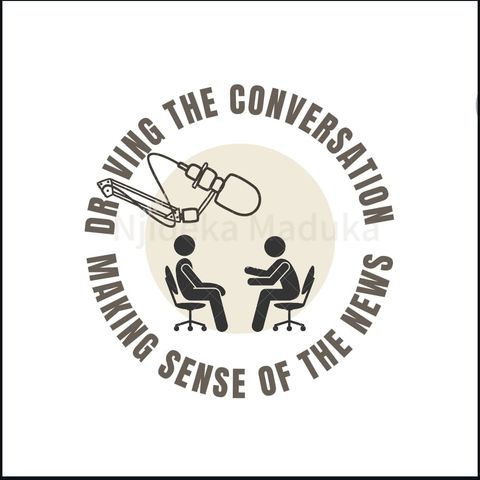The Nigerian Judiciary Under a Female Chief Justice with Monday Ubani

Descarga y escucha en cualquier lugar
Descarga tus episodios favoritos y disfrútalos, ¡dondequiera que estés! Regístrate o inicia sesión ahora para acceder a la escucha sin conexión.
Descripción
The Nigerian judiciary is one that evokes many reactions. At best, it is described as the last hope of the common man. At its worst, it is regarded as a...
mostra másWith nostalgia, commentators look back to when the judiciary was headed by the likes of Adetokunbo Ademola, Teslim Elias, and Mohammad Uwais as its glory days. Unfortunately, the same cannot be said of today's judiciary. In recent times, the Nigerian judiciary has been marred by controversies and allegations of corruption.
Take, for example, a recent report based on a survey conducted by the National Bureau of Statistics (NBS) in collaboration with the United Nations Office on Drugs and Crime (UNODC), revealed that Nigeria’s public officials received N721 billion in cash bribes in 2023, with Nigerian judges topping the list of bribe recipients.
Under the last three chief justices, controversies have trailed the institution, with some allegations either directly leveled against the number one judicial officers or associated with their administration. From Walter Onnoghen to Tanko Mohammed and Olukayode Ariwoola, none left without a perceived dent on their reputation.
It was for this reason that when Justice Kudirat Kekere-Ekun was sworn in by President Bola Tinubu as the acting Chief Justice of Nigeria (CJN), commentators naturally went on an agenda-setting mission for her.
Having been in the system for decades, one wonders what difference she can make in an institution which she has been part of. Of more interest is her role as the second female Chief Justice, a significant departure from traditional and historic norms where the judiciary has been led by male Chief Justices.
Foremost human rights lawyer, Barrister Monday Ubani joined us to discuss the expected reforms from the Acting CJN.
Información
| Autor | Njideka Maduka |
| Organización | NJ |
| Página web | - |
| Etiquetas |
Copyright 2024 - Spreaker Inc. an iHeartMedia Company
